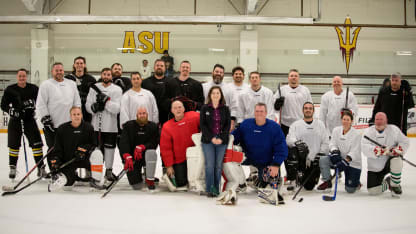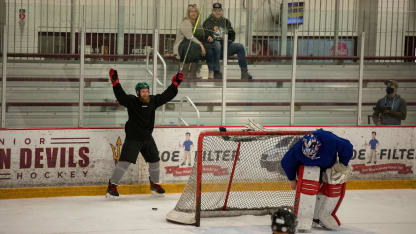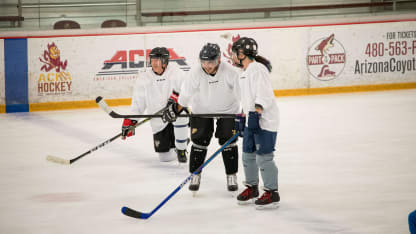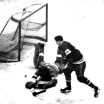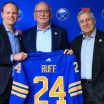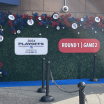Knowing that he was only allowed, per family rules, to play one sport each year, Colin Morrison went to his parents with a question when he was 11: Did that mean one sport, or one season? One sport, he was told. So Morrison, who had heard that roller hockey was played all year long, opted for the chance to extend his athletic exploits.
He would play every season until he left for the Marine Corps after high school graduation.
"I definitely found that loophole," he said. "And look where we are today, so it worked out."
Today, having eventually switched from roller hockey to ice, Morrison has established the newest team in the Warrior Hockey program, in Arizona. Warrior Hockey, under the auspices of USA Hockey, is dedicated to injured and disabled U.S. military veterans, a way for them to find the camaraderie and support they experienced in their military units and a therapeutic tool for their mental health.
And on Oct. 31, Morrison learned that Navy Federal Credit Union would be donating $30,000 on behalf of NHL Veterans Appreciation Night, which featured a game between the Arizona Coyotes and Minnesota Wild at Gila River Arena in Glendale, Arizona, on Nov. 10.
The contribution will, as Morrison emphasized, guarantee weekly ice for the Arizona Warrior Hockey team for at least two years.
"When we heard how much it was going to be, I was blown away," he said. "It's literally a life-changing amount of money for the veterans in our program."
Their first two skates were donated by their home rink, Oceanside Arena in Tempe. Beyond that, Morrison said, they didn't know how consistently they would be able to get ice, given the cost.
He didn't want to lose momentum. He wanted the veterans to know that the ice would be there, that the team would be there.
The $30,000 will cover 93 skates for the team.
